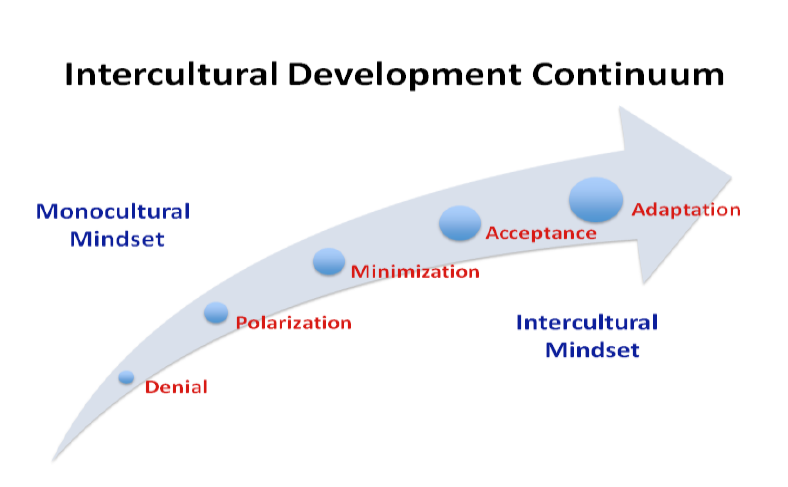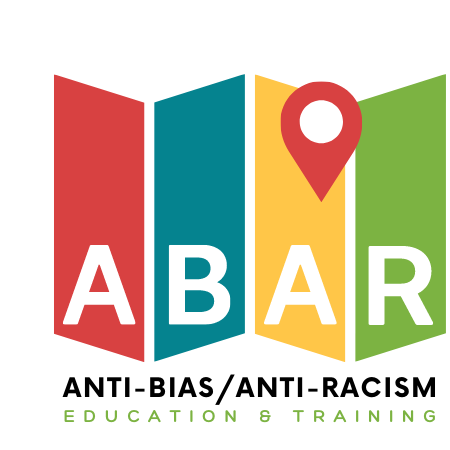
Welcome
What is ABAR?
Have more questions?
For more questions regarding ABAR please contact Associate Director of Connectional Ministry, Lisa Batten: lbatten@michiganumc.org

What is the IDI?
The Intercultural Development Inventory (IDI) is a tool to assess an individual's or group's set point as it relates to intercultural mindset and behaviors. A 50-item questionnaire designed to assess intercultural competence or one's ability to shift cultural perspectives and appropriately adapt behavior in response to cultural diversity. There is no grade or perfect score, only a greater understanding of oneself, or organization, and how to grow toward a multi-cultural mindset.
Intercultural competence is essential to living and working with people from diverse cultures and has been proven to be the key factor in fostering positive relationships between people of diverse cultures.
By taking these steps and using the resources provided on this page we are living into the attitudes and behaviors that reflect who we are called by faith to be. The Connectional Ministry team is here for you every step of the way.
Have more questions?
For more questions regarding IDI please contact
Naomi García
Change, Systems, Conflict...4 Good
ngarcía@michiganumc.org

The Intercultural Development Continuum (IDC TM) is an instrument for understanding our knowledge, attitude, skill sets and orientations towards cultural differences.
It is important to emphasize that no level is "Bad" or "Good". We all come from different backgrounds and experiences that contribute to the understanding we have. Through the IDI Assessment, the Cultural Vibrancy team aims to help us understand our developmental stages in order to be the people we want and need to be in order to create a healthier society.
Denial
A Denial mindset represents a limited experience with cultural difference, and thus a limited ability to understand cultural differences in values, beliefs, perceptions, emotional responses, and behaviors. Denial can consist of a disinterest in cultural differences and even an active avoidance of them. If you find yourself in this stage of development, take some time to reflect on ways you may be subconsciously harboring stereotypes and generalizations. Find more ways to reflect and grow with this resource page.
Polarization
Polarization is a mindset that views cultural differences from an “us versus them” perspective. Polarization can take the form of opinions like: “My cultural practices are superior to other cultural practices” or the reverse: “Other cultures are better than mine". Within the first point of view, cultural differences are often seen as divisive and threatening to one’s own “way of doing things.” The latter is a mindset that values and may idealize other cultural practices while denigrating one’s own culture group. Often seen in members of a marginalized culture, who seek to assimilate for the sake of avoiding retribution from the dominant group. Find ways to grow with this resource page.
Minimization
Minimization is a transitional mindset between the five different developmental stages. Someone with a Minimization mindset is able to recognize similarities between people, while still highlighting universal values and principles. These abilities are used by members of a dominant group and signify a limited cultural self-understanding. These same abilities can be used as a strategy that has survival value for non-dominant culture members and often takes the form of “go along to get along.” When Minimization exists in organizations, diversity often feels “not heard.” Find ways to grow with this resource page.
Acceptance
Having an Acceptance mindset allows individuals to recognize and appreciate patterns of cultural differences and similarities across cultures, including their own. A person at this developmental stage is curious to learn how a cultural pattern of behavior makes sense within different cultural contexts. This involves deep self-reflection of one’s own culturally learned perceptions, and the practices of different cultural groups. However, these individuals are not fully able to appropriately adapt to cultural difference. Individuals may often struggle with judging other cultures using the values and lens of their own culture as the objectively correct moral standard. Find more ways to grow with this resource page.
Adaptation
Adaptation is represented by changing behavior in authentic and culturally appropriate ways. A person at this developmental stage is able to enjoy deep cultural bridging across diverse communities. These individuals have experience navigating cultural similarities and differences. They may typically focus adaptive strategies, but can develop intolerance for people at other levels of the IDI continuum. Find ways to continue to learn and grow with this resource page.
Last Updated on January 9, 2025

